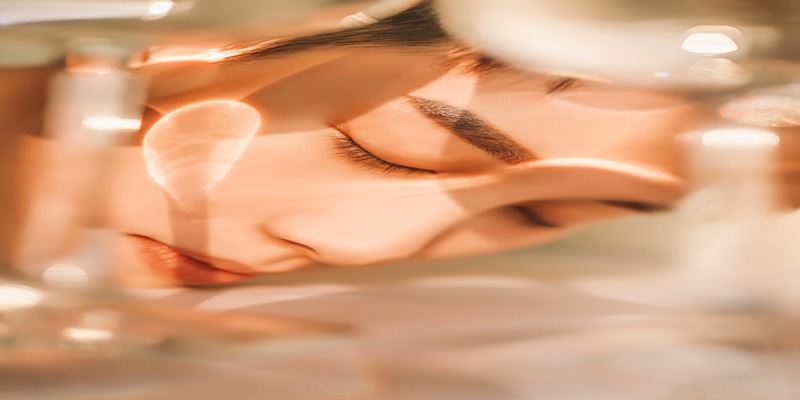Radiation therapy aims at complete recovery or a total remission in the patient, especially when treating cancer disease among others. However, the condition of people’s skin is usually neglected. Radiation is able to destroy cells within the human body. These include the skin, which lies exactly along the path of the radiation line. It can lead to such dermatological problems as dryness, mild irritations and blistering or even to the peeling. Therefore, using sophisticated skin care solutions cannot just be regarded as decadence but a necessity. For this reason, it is necessary to acquire the necessary information and employ valuable resources in overcoming these challenges. This article will explain different kinds of skin reactions people can be expected to have and how best they can be managed. Such a strategy will help reduce distress during the period of radiotherapy.

What You Must Grasp About Radiation Skin Effects
The impact of radiation extends beyond the superficial layers of the skin. The skin's inherent ability to heal and regenerate is compromised when the underlying skin cells are damaged or die. The potential negative consequences of this injury may not be readily observable in the short term, but they are likely to have enduring impacts. The heightened vulnerability of the skin to infections and the impeded natural healing process need the implementation of a specialized skincare regimen to address these underlying consequences.
Signs That Your Skin Requires Immediate Attention
The outward manifestations of radiation's impact on the skin may not always be readily apparent. While it is frequently the case that evident signs such as redness or blisters precede the occurrence of more severe complications. Vigilantly observe any deviations in appearance or tactile sensation from one's typical skin pigmentation. The act of peeling, regardless of its extent, is an issue that warrants attention. It is essential to carefully observe and attend to these symptoms, and promptly seek medical consultation.
Starting a Proactive Skincare Regimen
The use of radiation therapy requires an alteration in the skincare regimen. Initially, we will analyze articles used for the purpose of maintaining personal cleanliness. It is advisable to only use gentle cleansers for skin care, devoid of sulfates and other harsh components. To maintain the integrity of your skin's natural oils when cleansing, it is advisable to choose a cleanser that has a pH level that is neutral in nature.
Now, let's focus on creams, lotions, and ointments. Calendula and aloe vera are two instances of soothing constituents that have shown efficacy in cosmetic formulations. Hyaluronic acid and similar constituents have the potential to contribute to the maintenance of skin hydration. Various topical therapies are available on the market with the objective of mitigating the skin's susceptibility to radiation. For those seeking information on the most suitable skincare products after radiation treatment, it is advisable to consult with a medical professional.
Daily Skincare Habits You Can Adopt
There is no need to do a comprehensive overhaul of one's skincare routine in order to see a substantial improvement. In lieu of using a towel to wipe the skin dry after a shower, consider using a gentle patting motion to achieve the desired level of dryness. By implementing a little modification, the level of pain may be significantly reduced. Individuals who are susceptible to dry skin may consider using showers with lukewarm water instead of hot water.

What You Need to Eschew in Your Skincare Routine
It is important to exercise caution while selecting skincare products, since there exist certain substances that should be strictly avoided. Alcohols and fragrances are notable illustrations. The desiccating effects of radiation may be intensified by the presence of alcohols, since they possess inherent drying properties. Both natural and synthetic scents possess the capacity to exacerbate hypersensitive skin. Furthermore, it is advisable to refrain from using products containing retinoids or glycolic acid, unless otherwise instructed by a medical professional. The administration of radiation therapy has the potential to induce skin irritation, exacerbating symptoms and extending the duration of the healing process.
Expert Recommendations for Radiation Skin Healing
The potential for enhancing radiation-induced skin healing extends beyond conventional skincare regimens. Silicone gel sheets have been shown to potentially reduce symptoms such as dryness and irritation. These sheets function as a protective barrier, effectively inhibiting the loss of moisture and the infiltration of microorganisms. Hyaluronic acid, which is often included in specialized creams, is an additional feasible option. Hyaluronic acid, a well recognized substance renowned for its moisturizing properties, plays a crucial role in the restoration of the skin's innate protective barrier and expedites the process of wound healing. Nevertheless, it is important to engage in a thorough consultation with your healthcare provider prior to incorporating these therapeutic interventions into your treatment plan, in order to ascertain that they do not impede the efficacy of your existing regimen.
When To Consult a Dermatologist
The potential repercussions of radiation exposure on the skin might range from mild to severe. It is essential to promptly seek the expertise of a dermatologist in the event of seeing pronounced exfoliation, blister formation, or other indications of infection. For the management of these symptoms, it may be essential to consider more targeted therapeutic interventions, such as topical ointments or even pharmacological agents administered orally. Prompt therapy might lead to faster relief and recovery.
New Therapy Options for Relief
The primary approach to skin radiation therapy mostly involves conventional therapies, while other modalities may provide potential alleviation. According to some studies, acupuncture has been suggested as a potential method for relieving symptoms of radiation-induced dry mouth and itchy skin. It is essential to engage in a discussion with one's healthcare provider prior to incorporating any novel intervention into an existing treatment regimen, including alternative therapeutic approaches.
Conclusion
Despite its efficacy in treating certain illnesses, radiation treatment presents substantial hazards to the overall health of the skin. These conditions may range from very trivial, such as a rash, to more severe, such as an infection. In the present scenario, the use of specialized skincare products transcends being a mere indulgence, as it assumes the status of a need for maintaining one's overall health and well-being. Enhance the inherent protective mechanisms of your skin by adhering to a routine that includes gentle cleansing, enough moisturization, seeking expert guidance, and maybe incorporating supplementary therapies. By implementing preventive measures, individuals might potentially reduce the probability of encountering adverse effects and discomfort while undergoing radiation treatment.




